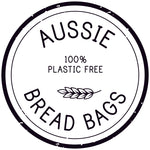So, what's the difference?
They are the latest buzz words. Compostable cups. Biodegradable bags. Degradable plastics.
I’m confused! What are they? What do they mean? Which is the best for the environment?
The Definitions – biodegradable, degradable and compostable
Let’s start with biodegradable plastic products and biodegradable plastic bags
Biodegradable products, such as biodegradable single use plastics and biodegradable plastic bags are generally made out of organic or plant-based materials, rather than the petroleum bi-products of standard plastics. That’s a good thing.
These plant-based materials can include wheat or corn starch, so have a much less damaging and far more renewable manufacturing process. That’s also good. Why don’t we still use them?
Before you set up an online partition to have them reinstated, we need to look at the other side of the biodegradable plastic bag coin. Unfortunately, there are some significant downsides.
In order to biodegrade, the bags or plastic products must be exposed to some very specific conditions. Temperatures need to be approximately 50 degrees Celsius, and plastics also must be exposed to UV light. This is a problem with plastics that end up in the ocean. Our oceans aren’t that warm!
In landfill, biodegradable plastics do break down, but they often do this without oxygen present. This means they produce methane, a gas that is worse than carbon dioxide when it comes to causing atmospheric warming.
So biodegradable plastics and materials don’t seem to be all they were once sold as.
Next to degradable plastics and biodegradable bags
These are products that also do break down – that’s better than non-biodegradable isn’t it?
Well, not necessarily. These plastics are made from chemicals and petroleum sourced raw materials. These materials don’t easily degrade, so additives are included to make them break down under certain circumstances.
Biodegrading usually uses organic organisms to break them down, such as fungi, but these plastics degrade by breaking into smaller and smaller pieces, eventually becoming micro-plastics.
While these plastic particles are very small and have lost their ability to choke an animal or block their digestive system, they still give off toxins that are harmful to land or marine animals.
They can unfortunately also be ingested by being breathed in, not just eaten. They can also be ingested by, and negatively affect smaller organisms than plastics normally would, leading to further damage.
Many people are confused by degradable or biodegradable bags, thinking they are the greener, more environmentally friendly option. When in reality, they are still very dangerous to our environment.
They are also manufactured in similar ways, with similar pollution from their manufacture given off and are made from non-renewable raw materials.
Compostable plastics and compostable bags
These have to be the good ones, don’t they? Can’t they just go into my backyard vege waste composter and it will work its magic with them?
Not quite. While, similar to biodegradable, compostable bags are made from organic or plant-based materials, they also only biodegrade under specific conditions.
They usually would need to be composted through a specialised composting facility, and there aren’t very many of those in Australia at all, unfortunately. Only about 150 nation-wide.
BUT.. the best part about compostable products is if you don't have access to a composting facility, you can always create your own compost in your backyard! Check out this fantastic website with video for more info on how to create your own backyard compost for all your vege scraps as well as natural material products that you no longer need (as a last resort) such as an Aussie Bread Bag.
The best bags to use to replace plastic bags?
Reusable is always the best option. And use it over and over as much as you can! If it breaks, mend it or repurpose it. And as a last resort when it comes to the end of its life, dispose of it properly and thoughtfully.
Eliminate your need for plastic bread bags by visiting your bakery with an Aussie Bread Bag instead. Aussie Bread Bags are made with natural cotton, are breathable, reusable, and kind to the environment. Buy yours today!
